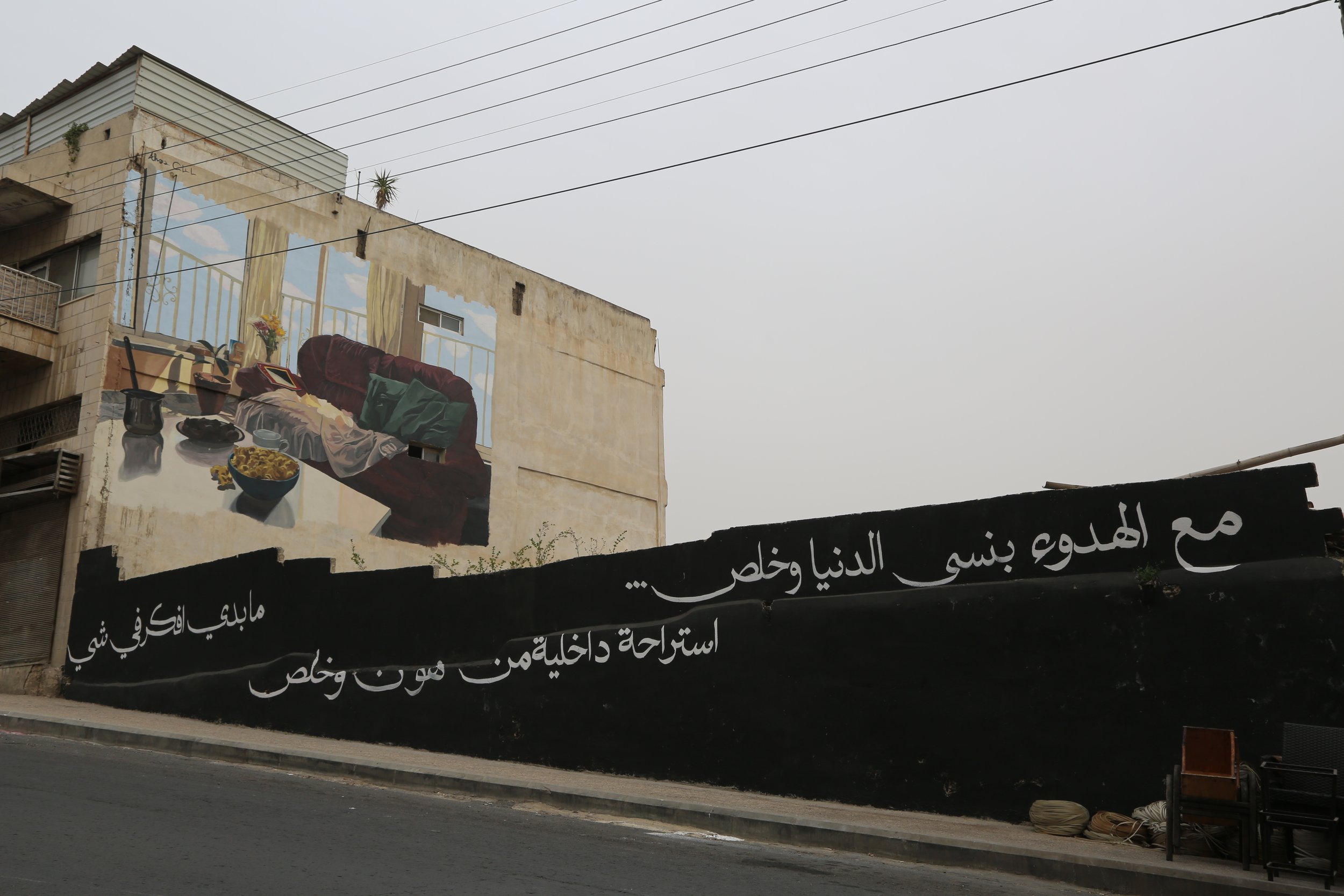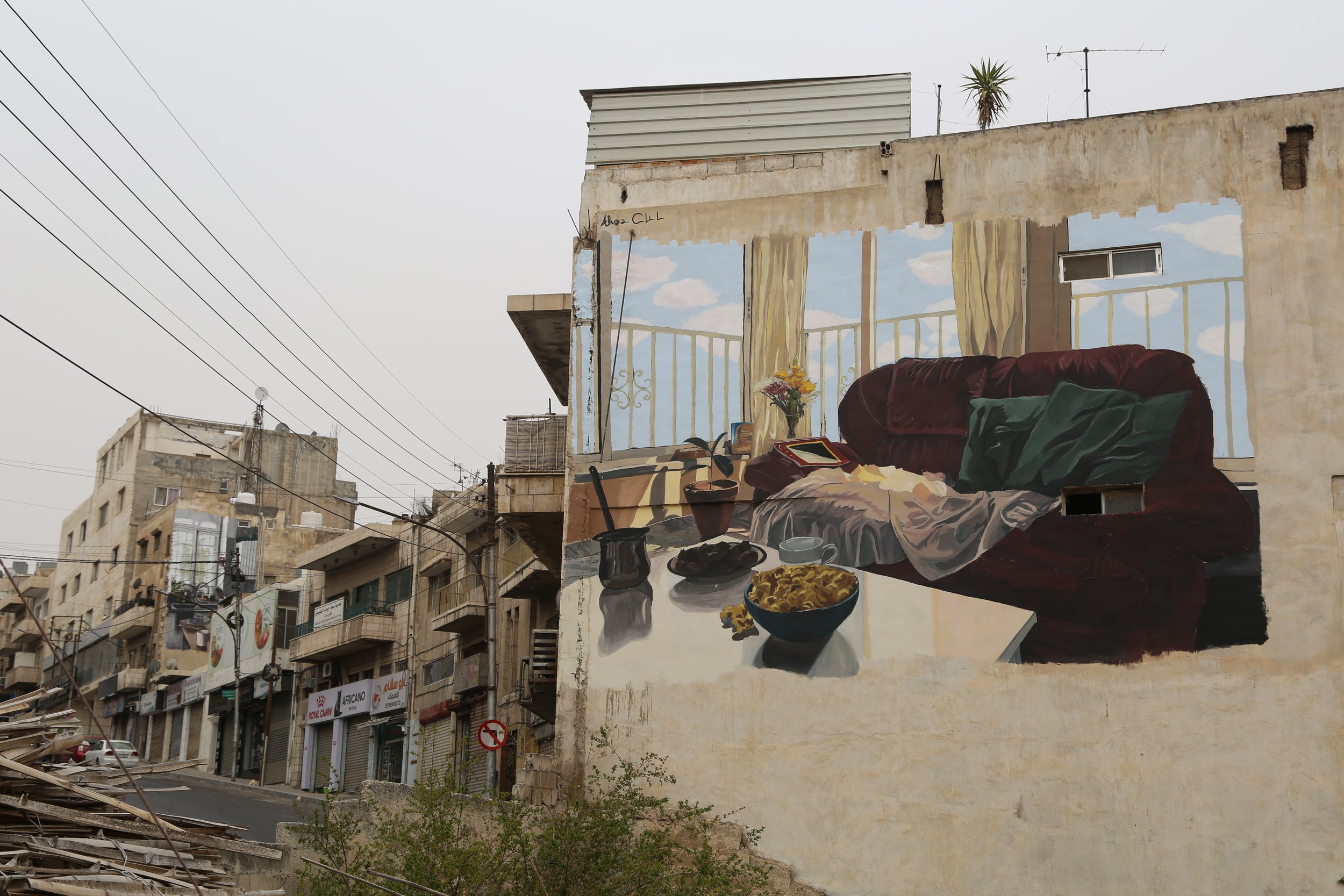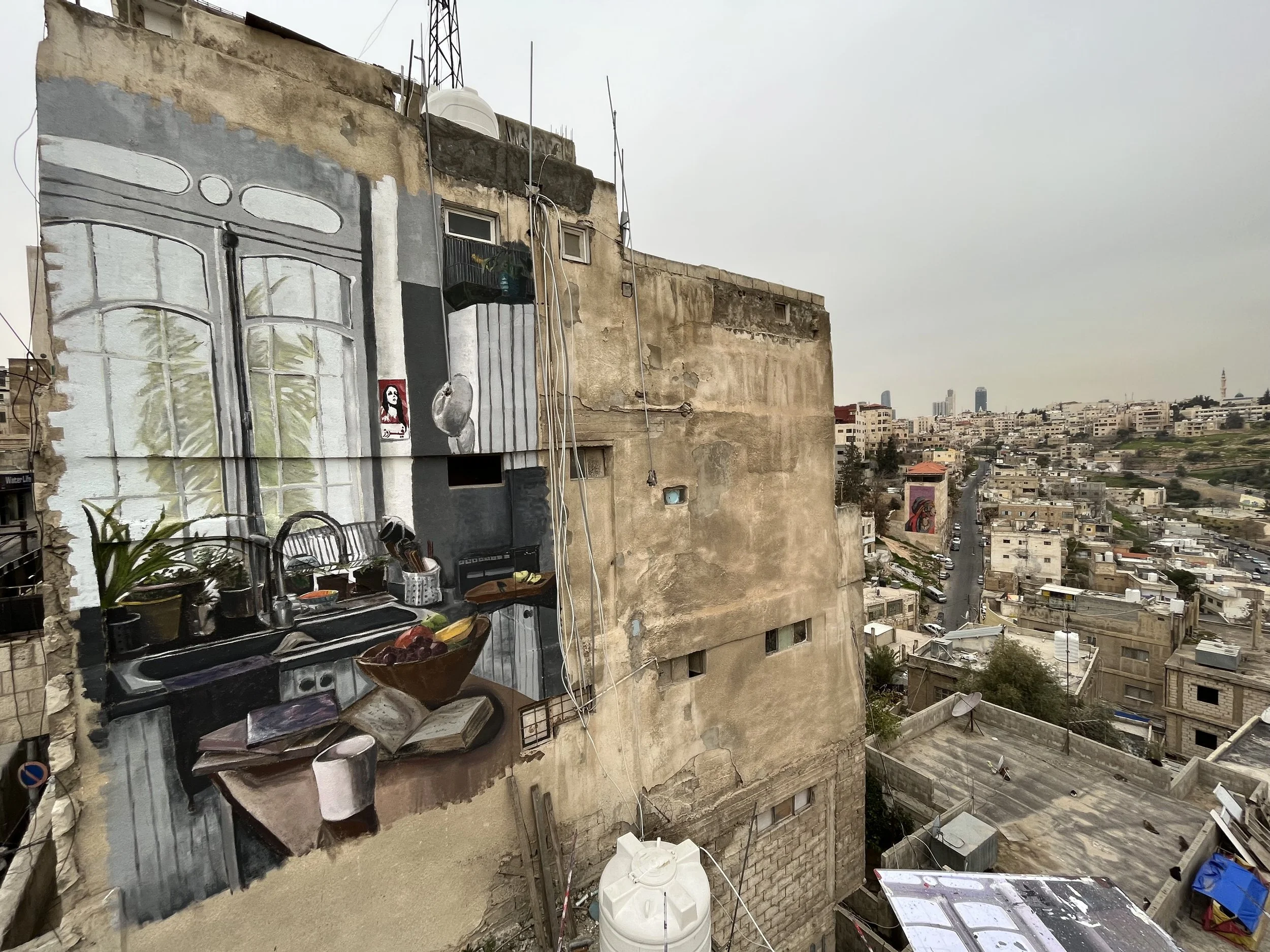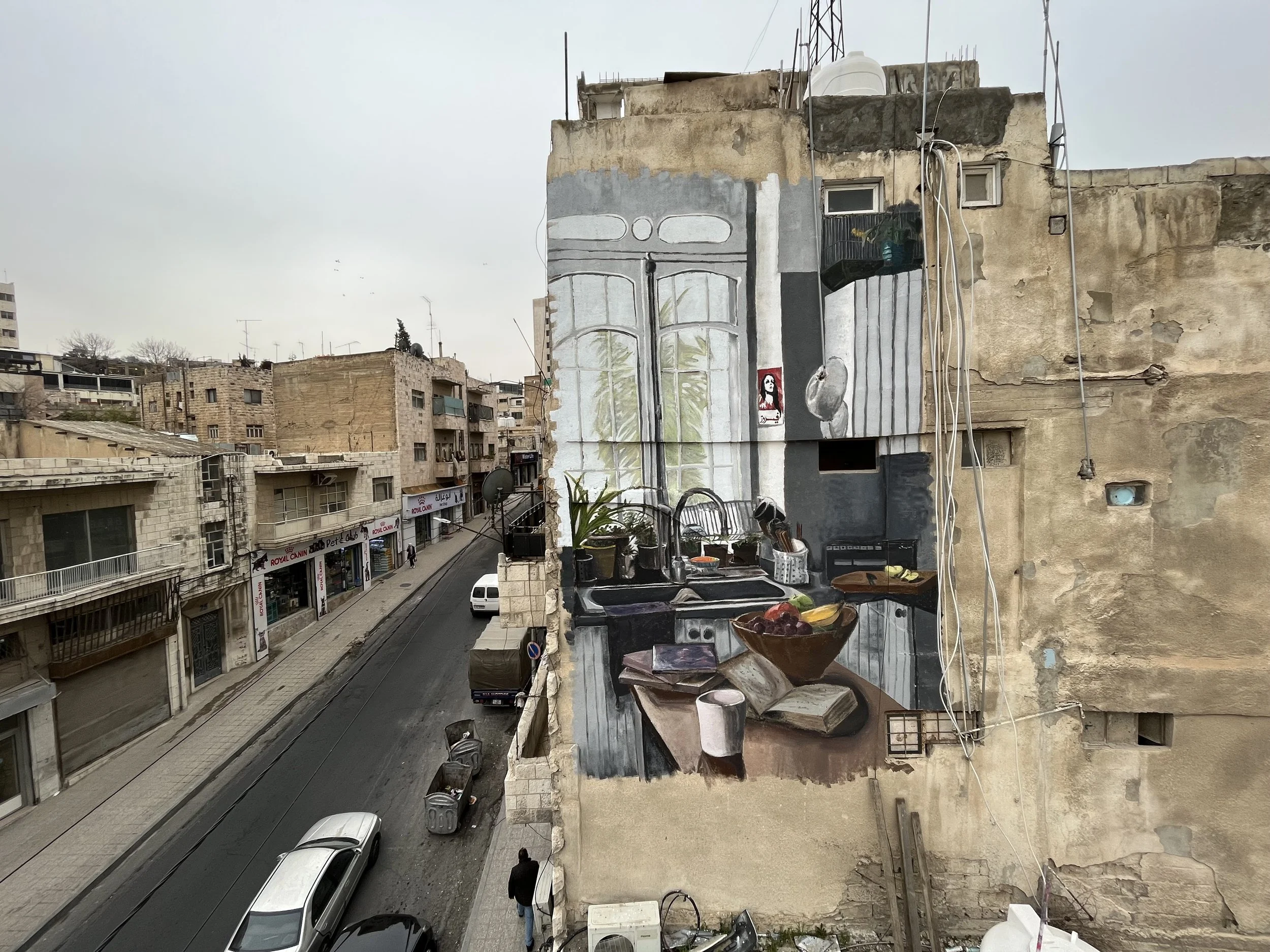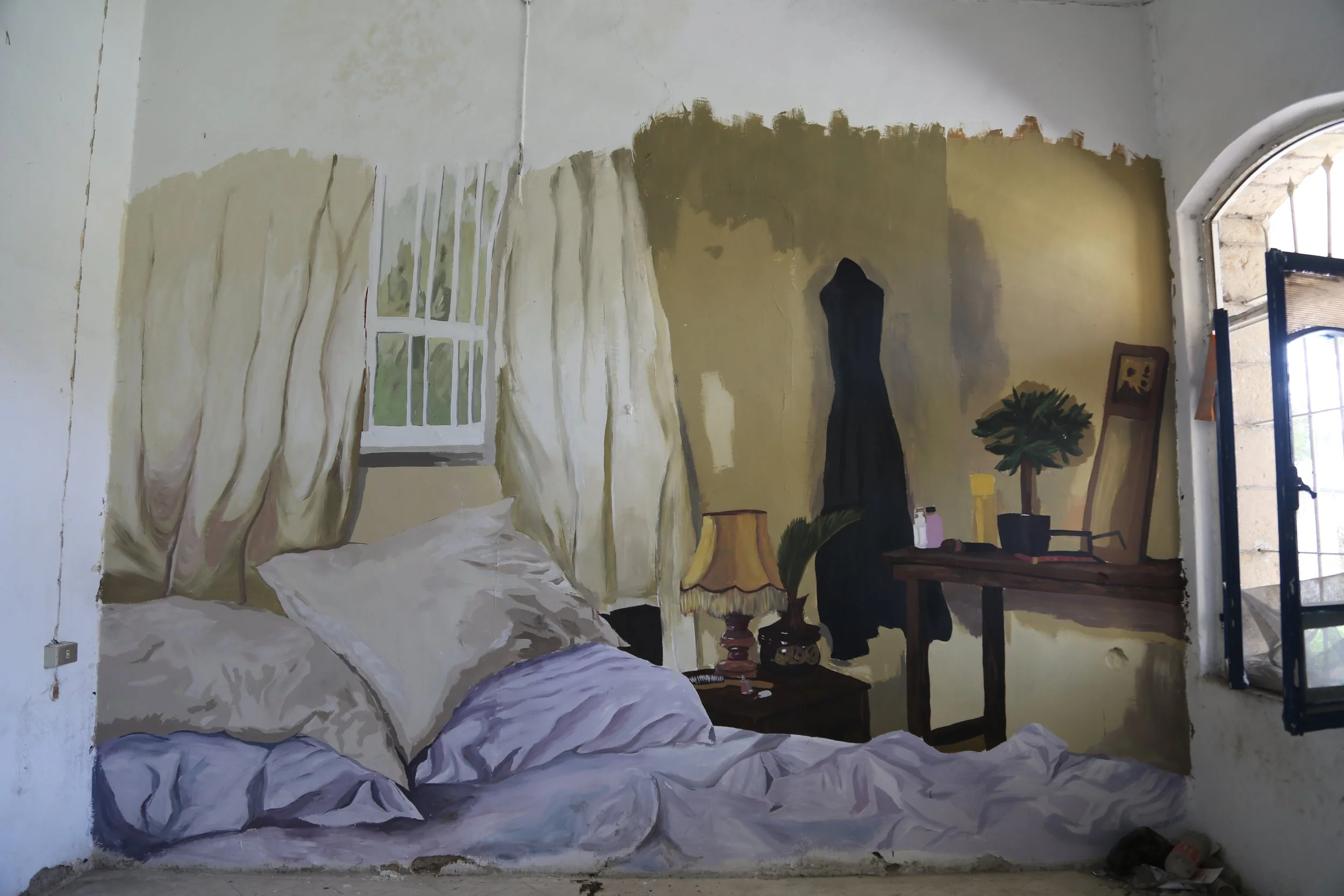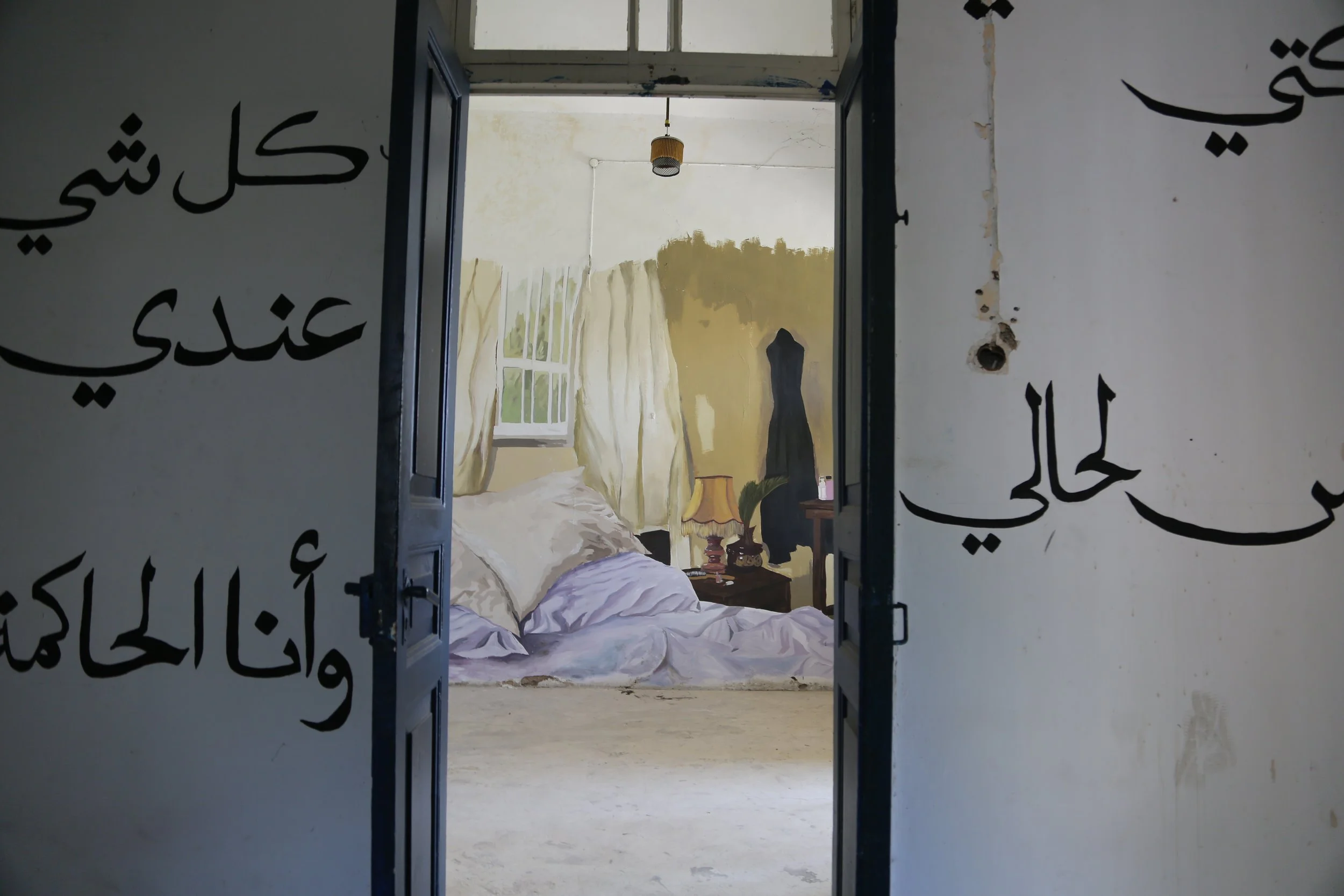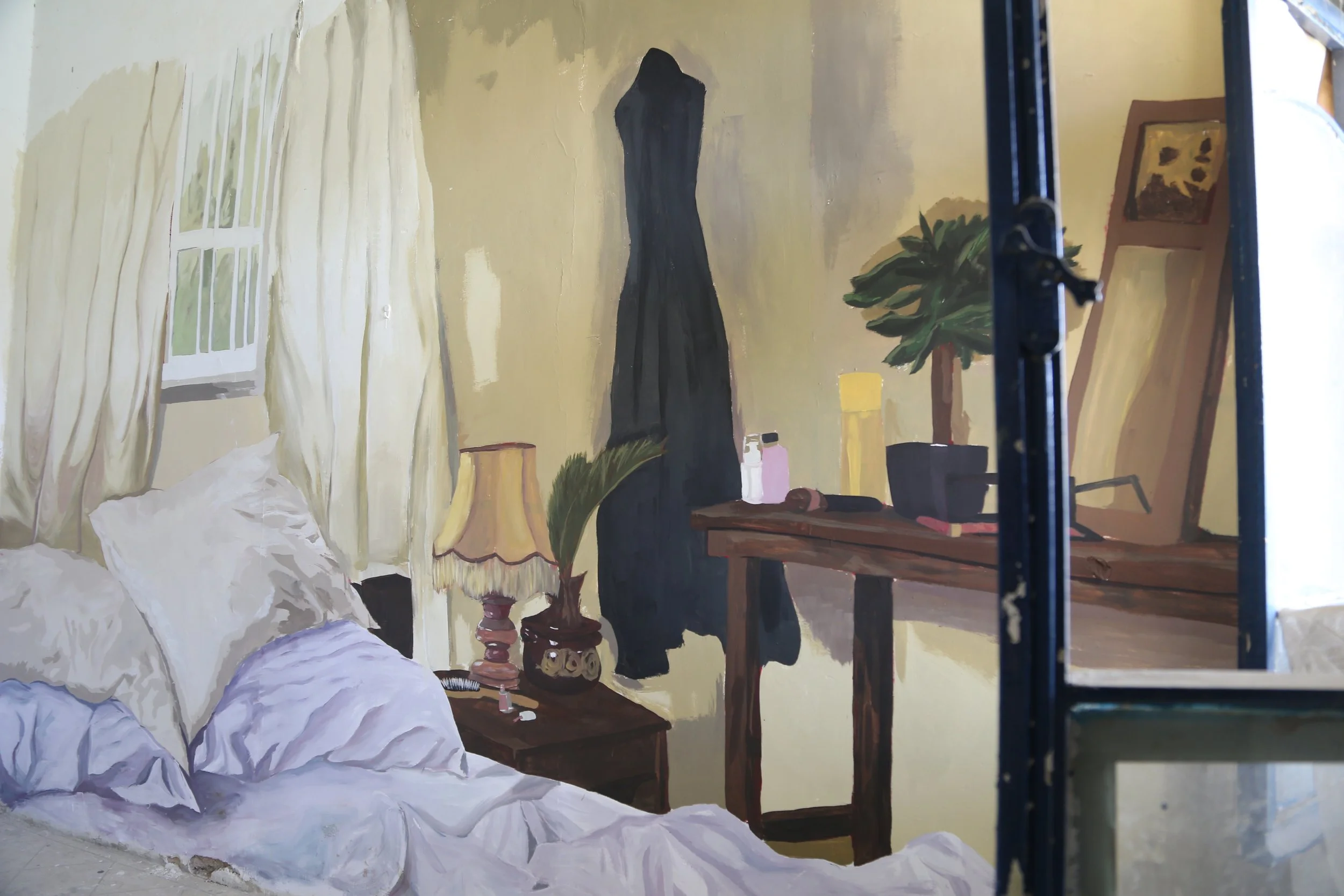Imagined Spaces
مساحات احلام
2022
work in collaboration with Ahoo Maher
A three part mural series as part of an upcoming documentary film interviewing women that have experienced domestic violence and threats. These women had to flee from their families to the outskirts of cities under anonymity to hide away from the public for the sake of safety with no other resort. In the interviews, the women describe their dream spaces, thoroughly going into detail how they would like their house to look like, from the colour of the coaches to the view outside the house. The murals depict a collection of imagery that the women described in how they’d want the rooms of their houses to look like. The murals attempt to re-instate the thoughts and dreams of women in a large scale manner back into public space, a space that they don’t feel safe and hide from.
Living Room
The living room describes a space where the sun hits their face, a place of leisure by herself for herself. A time to watch TV, have coffee or snacking at night to chestnuts and popcorn. This sense of leisure that is a luxury of sorts. Most that was described was the feeling of openness in the room, the sun rays hitting everywhere and feeling of serenity and calmness.The quote is derived from one of the interviews from the film.
Kitchen
The kitchen in itself connotes a common patriarchal ideology in relation to a woman’s relationship with her home. In the interviews, the women described their kitchen as a place that they’re able to nourish themselves and children, with filled fridges and beautiful black and white tiling while listening to Fairuz in the morning. What happens when the kitchen, a societally perceived as a private female-specific place is contested in public space amongst a mostly male-dominated street.
Bedroom
The Bedroom creates an enigma, it’s a critical and sensitive conversation to have in a public space like Amman. It has its own connotations developed by “conservatism”, usually leading the viewer to only think about sex, or at least that’s the fear and assumption made by some individuals. Creating the last wall in a private yet abandoned space created a new sense of intimacy that’s unique to the series. It falls in line with the subversive narrative of Amman, where we have to actively and constantly think about how we want to tell the stories without evoking threatening outrage. What is the best place to have these sensitive conversations? And how do we have them?
The conversations with the women centred around thinking about the bedroom as a sanctuary from the outside. A private space that’s sensitively curated to fit what they want, a large safe to store their prized belongings. The activities in the bedroom were more centred about having a space to define herself in before facing the outside world, a place to recharge, to change her clothing, to put makeup on. A sense of ownership was highly important when talking about the bedroom. The quote is derived from conversations that happened in the interviews.

